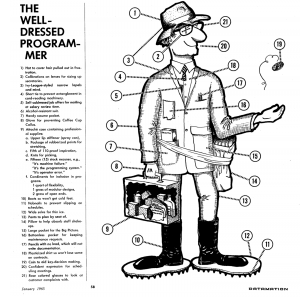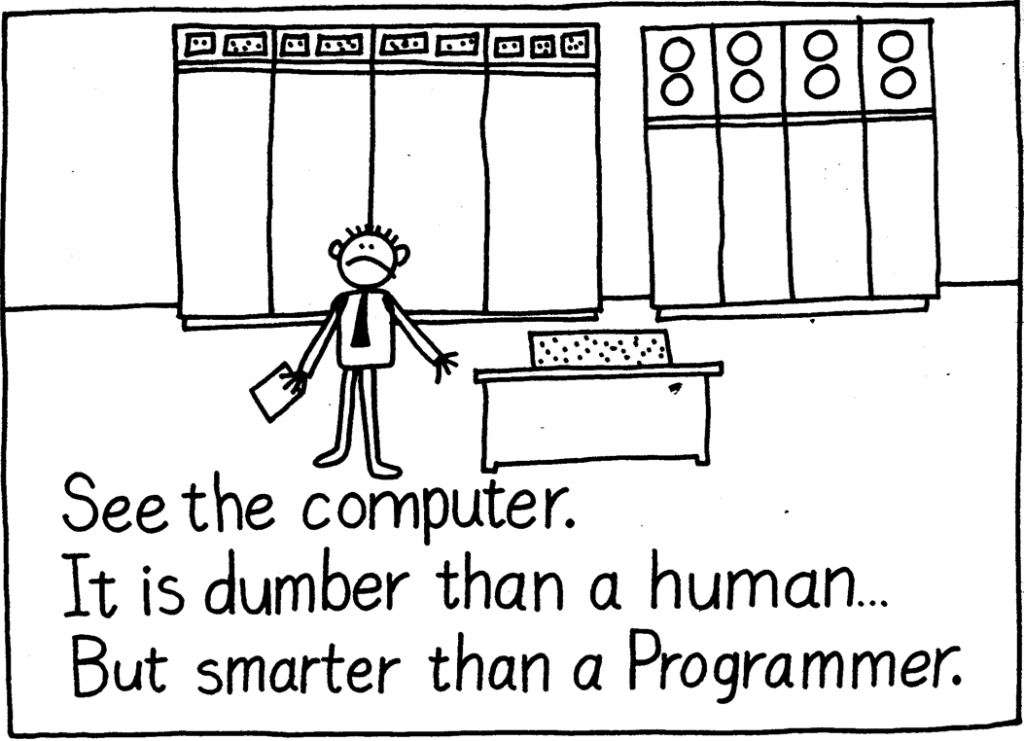Looking at the job advertisements for computer programmers in the early 1960s, it is clear that many programmers were concerned about the future of their profession. On the one hand, there were many opportunities for horizontal mobility within the profession: an even moderately skilled programmer could readily move from company to company, and had little to fear in terms of long-term unemployment. On the other hand, it was not clear the programmers had much vertical mobility: for a variety of reasons, programmers were often not seen as being managerial potential. Many of the advertisements from this period appeal to this sense of frustration and insecurity. The overall message seemed to be “come work for our company; we will treat you as being more than a mere technician.”
Tag Archives: programmers
The Well-Dressed Programmer
Of all the sources that I used to construct The Computer Boys, none was as fun or useful as the industry journal Datamation. Unlike the more academically oriented journals from the ACM, Datamation was unabashedly industry focused. It also was much more intimate, honest, and above all, humorous. Throughout the 1960s it included a series of parodies of pop-culture phenomenon. Here is one of my favorites, The Well-Dressed Programmer:
Click the image for a much larger version.
The Programmer’s Coloring Book
In the mid-1960s, the computer industry journal Datamation published a series of parodies of the cult-classic The Executive Coloring Book. The Executive Coloring book was itself a parody of the self-important man-in-the-grey-flannel-suit managerial culture of the period.
The cartoon above is from my favorite of the Datamation parodies, which was called The Programmer’s Coloring Book. The book is full of funny little in-jokes for computer programmers, including “See the programming bug. He is our friend. Color him swell! He gives us job security,” and “Here is an outlook. Color it bleak,” and “Here is a flowchart. It is usually wrong.” I wish that I had been able to include more such images in the print-version of the book. They really capture the flavor of what it was like to work as a programmer in the 1960s.
Here is the full version.
Computer Revolutionaries
From the introduction:
“Chances are that you or someone close to you makes their living “working with computers.” In the decades since the 1950s, the technical specialists most directly associated with the electronic digital computer—computer programmers, systems analysts, and network and database administrators—have assumed an increasingly active and visible role in the shaping of our modern information society.”
Read more from the introduction to The Computer Boys Take Over
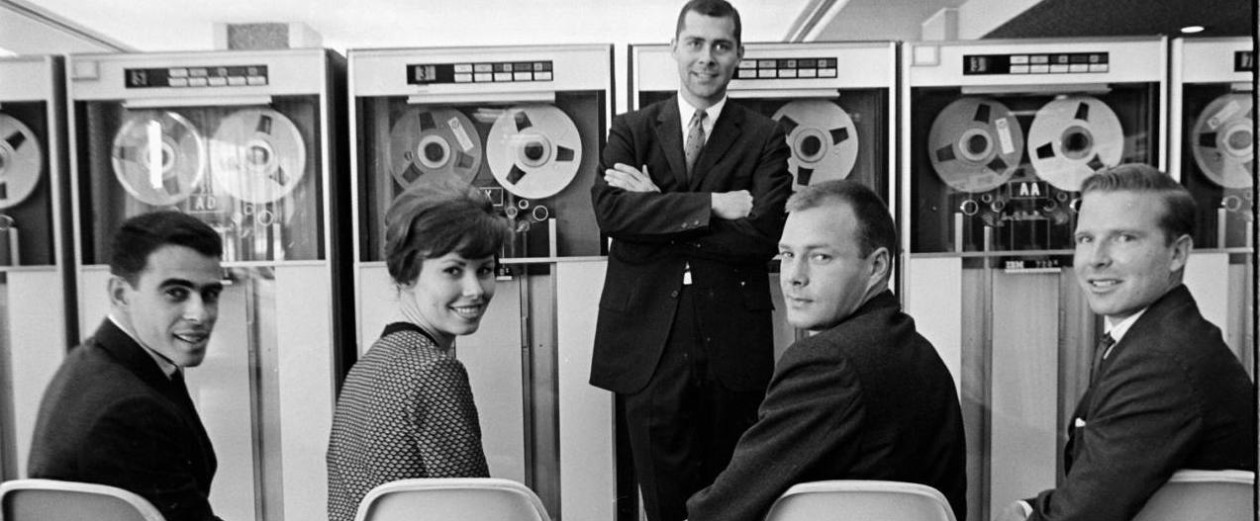
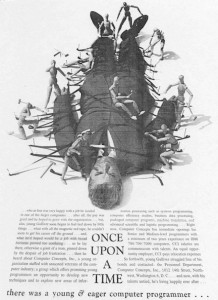
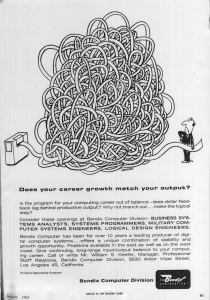
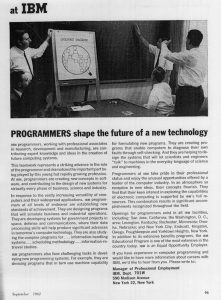
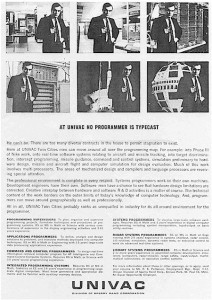
 Follow
Follow